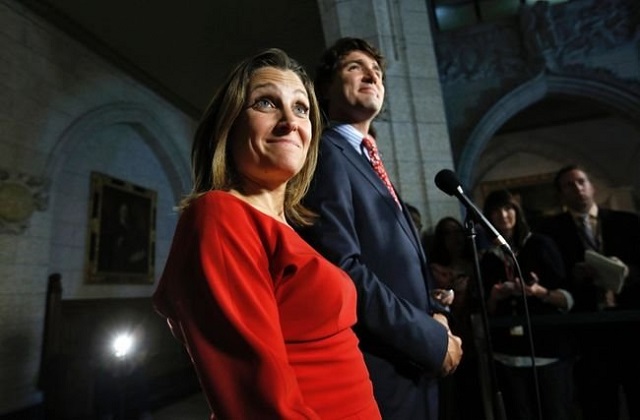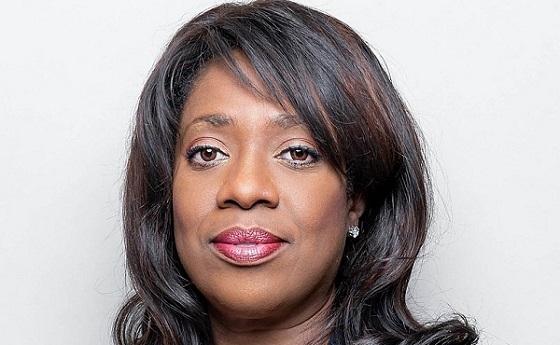National
PBO report shows massive deficits for years to come

From the Canadian Taxpayers Federation
Author: Franco Terrazzano
The Canadian Taxpayers Federation is calling on the federal government to rein in spending and balance the budget following today’s Parliamentary Budget Officer report.
“PBO numbers show the government is running massive deficits for years to come with no plan to balance the budget,” said Franco Terrazzano, CTF Federal Director. “It’s time for Prime Minister Justin Trudeau to listen to the PBO’s warnings, put down the credit card, pick up some scissors and return to fiscal sanity.”
The PBO forecasts a $41 billion deficit in 2024.
“Compared to our October outlook, we are projecting budgetary deficits that are $7.9 billion higher, on average, over 2023-24 to 2028-29,” according to the PBO. “This increase is largely due to upward revisions to our projection of direct program expenses (including new measures).”
The PBO projects interest charges on the debt will cost taxpayers $52.1 billion. That’s equal to the amount the federal government sends to the provinces through health transfers. In 2028, interest charges will cost $62 billion, which is more than the government expects to collect through its GST.
Despite Finance Minister Chrystia Freeland’s commitment to reduce debt-to-GDP, the PBO report forecasts the ratio to increase slightly from to 42.4 to 42.5 per cent in 2024.
In its last budget, the government said it would find “savings of $15.4 billion over the next five years.” However, the PBO shows spending increasing by almost $20 billion in 2024.
“This government’s spending is out of control,” Terrazzano said. “In the upcoming budget, Trudeau and Freeland need to show Canadians that they care about the state of the country’s finances and balance the books.”
The federal government will present its 2024 budget on April 16.
Digital ID
Leslyn Lewis urges fellow MPs to oppose Liberal push for mandatory digital IDs

From LifeSiteNews
The Conservative Party MP told fellow members of Canada’s House of Commons that digital IDs lead to increased surveillance by the state that must be kept in check.
One of Canada’s most staunchly pro-life MPs warned Canadians to be “on guard” against a push by the ruling Liberal Party to bring forth Digital IDs, saying that they should be voluntary.
Earlier this week, Conservative Party Member of Parliament Leslyn Lewis told fellow MPs in the House of Commons that increased surveillance by the state must be kept in check.
“Every promise of transparency can become a tool of surveillance if not guided by the principles of freedom that we cherish,” she said.
“If everything of value becomes data, every aspect of our lives can become data to be recorded and monetized. That is why we must be on guard.”
Lewis made the comments in light of news, as reported by LifeSiteNews, that the federal government under Prime Minister Mark Carney will move ahead with digital identification for anyone seeking federal benefits, including seniors on Old Age Security.
Lewis told MPs that Canadians “deserve to know where data are stored, who profits from its use and whether freely opting out of systems including digital ID will remain a right in the digital era, especially when it comes to accessing essential taxpayer-funded services.”
“Without these answers, a trusted artificial intelligence ecosystem becomes a polite euphemism for centralized control,” she warned.
Lewis also noted that citizens should never be “reduced to mere consumers at the end of a bar code,” adding that “Human beings are not data points to be managed.”
“We are souls with a purpose. The future we build must reflect that truth,” she said.
Despite Lewis’s remarks, the government, in a recent note in Carney’s 2025 budget that passed earlier this week, said that changes will be made to the Department of Employment and Social Development Act. The goal is to “enable the delivery of more integrated and efficient services across government.”
As reported by LifeSiteNews, the Canadian government hired outside consultants tasked with looking into whether or not officials should proceed with creating a digital ID system for all citizens and residents.
As per a May 20 Digital Credentials Issue memo, as noted by Blacklock’s Reporter, the “adoption” of such a digital ID system may be difficult.
Canada’s Privy Council research from 2023 noted that there is strong public resistance to the use of digital IDs to access government services.
Nonetheless, Conservative leader Pierre Poilievre sounded the alarm by promising to introduce a bill that would “expressly prohibit” digital IDs in Canada.
Digital IDs and similar systems have long been pushed by globalist groups like the World Economic Forum, an organization with which Carney has extensive ties, under the guise of ease of access and security.
Health
Disabled Canadians petition Parliament to reverse MAiD for non-terminal conditions

From LifeSiteNews
Canadians with disabilities have demanded that legislators stop treating their lives as ‘dispensable’ by banning non-terminal ‘Track 2’ assisted suicide.
Conservative Member of Parliament Garnett Genuis has presented a petition from Canadians with disabilities warning against euthanasia expansion.
During a November 19 session in the House of Commons, Genuis delivered a petition to end Track 2 Medical Assistance in Dying (MAiD) request, which allow doctors to end the lives of those who are not terminally ill but have lost the will to live due to their having chronic health problems.
“The petitioners state that it is unacceptable for Canadians to choose medical assistance in dying due to a lack of available services or treatments,” Genuis told the House of Commons. “This is not a real choice. They point out that allowing MAiD for people with disabilities or chronic non-terminal illnesses devalues their lives. It sends the dangerous message that life with a disability is optional.”
People with Disabilities are Speaking Out On Euthanasia/MAiD
So-called “Track 2 MAiD” has transformed the experience of people with disabilities when accessing the healthcare system.
These petitioners want it reversed. pic.twitter.com/n3izpAQI2T
— Garnett Genuis (@GarnettGenuis) November 17, 2025
Genuis cited a recent article in Le Soleil which recounted the troubling case of a sick Canadian man who was essentially encouraged by a social worker to stop fighting and opt for death by lethal injection.
“That is not compassion. It is a betrayal of our duty to protect human dignity,” he declared.
The petition pointed out that “allowing medical assistance in dying for those with disabilities or chronic illness who are not dying devalues their lives, tacitly endorsing the notion that life with disability is optional, and by extension, dispensable.”
It also pointed out that making MAiD available to individuals with disabilities or chronic illnesses diminishes the motivation to develop better treatments and provide higher quality care for those living with such conditions.
In conclusion, the petition called on the Canadian government to “protect all Canadians whose natural death is not reasonably foreseeable by prohibiting medical assistance in dying for those whose prognosis for natural death is more than six months.”
A few days earlier, on November 17, Liberals responded to the petition by claiming that they have implemented “safeguards” to assess if someone is eligible to receive MAiD.
“These safeguards aim to address the risks associated with diverse sources of suffering and vulnerability, that could lead someone not close to death to seek MAiD,” Liberals wrote. “The safeguards examine whether their suffering results from factors other than the medical condition and whether there are ways of addressing their suffering other than through MAiD.”
However, this is not the first time that Canadians have petitioned to protect vulnerable Canadians from the ever-growing euthanasia regime.
As LifeSiteNews reported in October, Inclusion Canada CEO Krista Carr told Parliament that many disabled Canadians are being pressured to end their lives with euthanasia during routine medical appointments.
Similarly, internal documents from Ontario doctors in 2024 that revealed Canadians are choosing euthanasia because of poverty and loneliness, not as a result of an alleged terminal illness.
In one case, an Ontario doctor revealed that a middle-aged worker, whose ankle and back injuries had left him unable to work, felt that the government’s insufficient support was “leaving (him) with no choice but to pursue” euthanasia.
Other cases included an obese woman who described herself as a “useless body taking up space,” which one doctor argued met the requirements for assisted suicide because obesity is “a medical condition which is indeed grievous and irremediable.”
At the same time, the Liberal government has worked to expand euthanasia 13-fold since it was legalized, making it the fastest growing euthanasia program in the world.
Currently, wait times to receive actual health care in Canada have increased to an average of 27.7 weeks, leading some Canadians to despair and opt for euthanasia instead of waiting for assistance. At the same time, sick and elderly Canadians who have refused to end their lives have reported being called “selfish” by their providers.
The most recent reports show that euthanasia is the sixth highest cause of death in Canada; however, it was not listed as such in Statistics Canada’s top 10 leading causes of death from 2019 to 2022.
Asked why it was left off the list, the agency said that it records the illnesses that led Canadians to choose to end their lives via euthanasia, not the actual cause of death, as the primary cause of death.
According to Health Canada, 13,241 Canadians died by euthanasia lethal injections in 2022, accounting for 4.1 percent of all deaths in the country that year, a 31.2 percent increase from 2021.
-

 Crime2 days ago
Crime2 days ago‘Modern-Day Escobar’: U.S. Says Former Canadian Olympian Ran Cocaine Pipeline with Cartel Protection and a Corrupt Toronto Lawyer
-

 National18 hours ago
National18 hours agoPsyop-Style Campaign That Delivered Mark Carney’s Win May Extend Into Floor-Crossing Gambits and Shape China–Canada–US–Mexico Relations
-

 COVID-1914 hours ago
COVID-1914 hours agoCovid Cover-Ups: Excess Deaths, Vaccine Harms, and Coordinated Censorship
-

 Bruce Dowbiggin15 hours ago
Bruce Dowbiggin15 hours agoBurying Poilievre Is Job One In Carney’s Ottawa
-

 Alberta1 day ago
Alberta1 day ago‘Weird and wonderful’ wells are boosting oil production in Alberta and Saskatchewan
-

 Alberta2 days ago
Alberta2 days agoAlberta on right path to better health care
-

 Alberta1 day ago
Alberta1 day agoAlberta to protect three pro-family laws by invoking notwithstanding clause
-

 Artificial Intelligence2 days ago
Artificial Intelligence2 days agoLawsuit Claims Google Secretly Used Gemini AI to Scan Private Gmail and Chat Data



